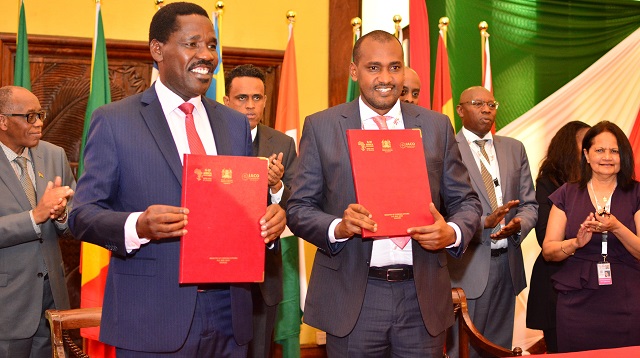
Kampala, Uganda | THE INDEPENDENT | African coffee-producing countries have gathered in Nairobi to chart ways of improving the continent’s coffee sector and cushion it from global shocks.
These include the effects of pandemics, trade barriers, and market dynamics like unfair taxes and trade restrictions among others. The first G25 Coffee Summit also has the study of Uganda’s production success story top of the agenda, under the theme: “Sustainable Development and Economic Growth in the African Coffee Sector.”
This comes at a time when Uganda is in the spotlight for various reasons including achieving a sharp increase in coffee production over the last five years, the decision to withdraw from participation in the International Coffee Organization’s current agreement, as well as the controversial agreement with a foreign company to process and export Uganda’s coffee.
On its withdrawal from the ICO Agreement, Uganda cited several reasons including unfair tariffs, restrictions on exporting processed coffee, and an “unjust and outdated” coffee classification system that does not recognize ‘Ugandan Coffee’.
In a 2020 report, ICO found that processed coffee imported from Uganda is subject to a 60 percent tariff while other countries, including European Union, Norway, and Japan, pay low or zero rates.
The 25 African countries agreed that there is a need to make it as easy as possible to trade in coffee within the African continent, to avoid setbacks in the international market.
“We are at an opportune moment to benefit from the African Continental Free Trade Area, (AFCFTA) which provides for free movement of persons, capital, goods, and service to deepen economic integration and promotion of agricultural development,” said Frank Tumwebaze, the Minister for Agriculture, Animal Industry and Fisheries.
The countries have agreed to collectively push for the inclusion of coffee among the priority agriculture commodities in the AU 2063 agenda under the Nairobi declaration just signed. The next G25 Summit is due in Uganda next year.
In 2014, Uganda Coffee Development Authority-UCDA started implementing a 10-year strategy involving a replanting campaign to boost output, and in 2017, the National Coffee Roadmap was drawn with the aim of producing 20 million bags per year by 2025. Production has since more than doubled to more than 8 million bags.
Tumwebaze however told the conference that a lot more needs to be done by all the countries, to eliminate challenges both local and international, hoping that the African Continental Free Trade Area will boost trade among the counties.
The Uganda Coffee Roadmap was initiated by President Museveni and one of its aspects was to rally as many community leaders as possible to mobilize the masses and help the sensitization of coffee farmers on what each stakeholder needed to do.
UCDA Executive Director, Emmanuel Iyamuremye said the political will is therefore very important in realizing the objectives of any policy. He told them that Uganda’s successful experience can be adopted by the continent as a strategy for increasing production.
Uganda is currently Africa’s largest exporter and 7th globally and is second in production to Ethiopia, which is hailed for consuming most of its production. It is said that Africa’s coffee exports are equal to Africa’s coffee imports.
The countries, under their umbrella, the Inter-Africa Coffee Organization (IACO) think if African countries can buy their own coffee, the industry will experience rapid growth.
During the opening of the summit, Kenya’s agriculture minister Peter Munya warned the members that there is a need to continue measuring themselves against the major producing countries, especially in terms of quality, as well as keep in mind the changing market environment.
Africa’s coffee exports are valued at about 2 billion dollars, with Uganda accounting for more than a third, followed by Ethiopia and Cote d’Ivoire.
Adugna Debela, Deputy CEO and President of Ethiopian Horticulture Science Society stressed that if African countries could develop interconnectivity between themselves, increase coffee consumption, and support research into production and marketing, there would be a coffee revolution.
Josephine Ndikwe, the Chairperson of the Association of Women in Coffee, Kenya called for information dissemination platforms that will help Africa detect early any impending calamities like harsh weather and how to guard against them.
She also says the same is needed to enable the other African countries to learn what Uganda has done, but also research into new production technologies.
Solomon Rutega, the Secretary-General of the Inter-African Coffee Organization says the agreement with the African Union which will integrate the coffee industry in the long-term plans will go a long way in developing the industry.
This will include the removal of the various trade barriers which are currently a concern across the continent.
*****
URN
 The Independent Uganda: You get the Truth we Pay the Price
The Independent Uganda: You get the Truth we Pay the Price


